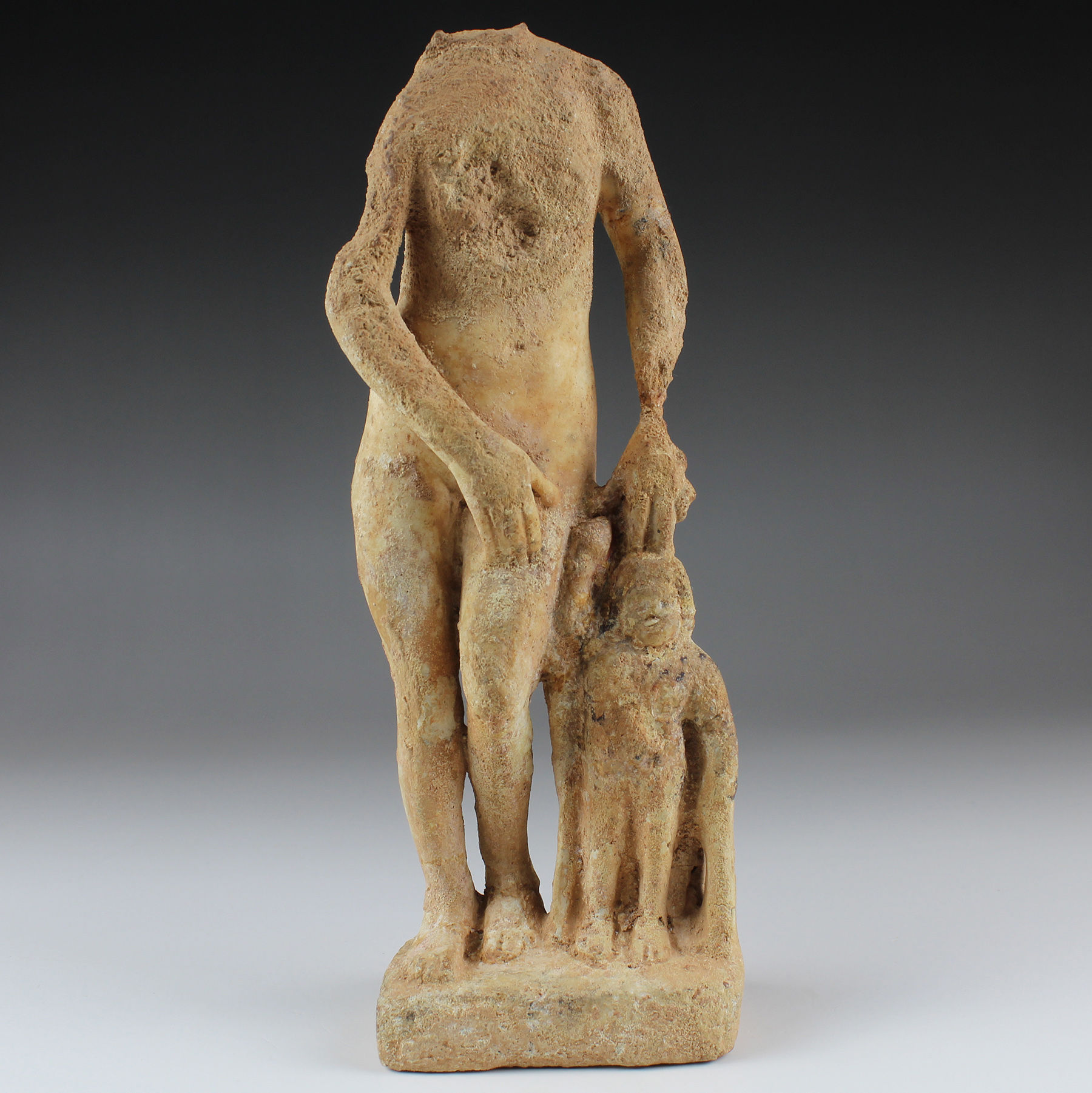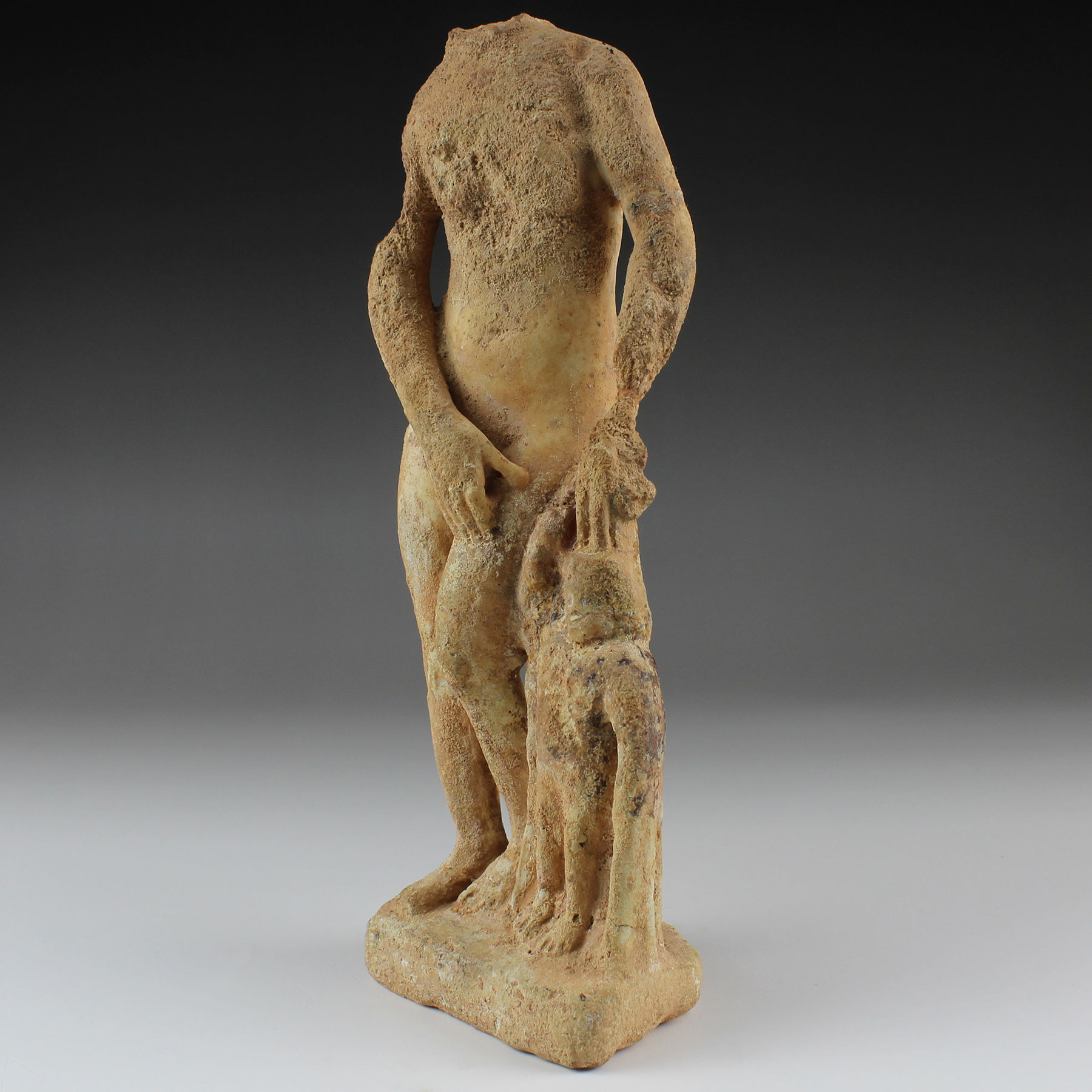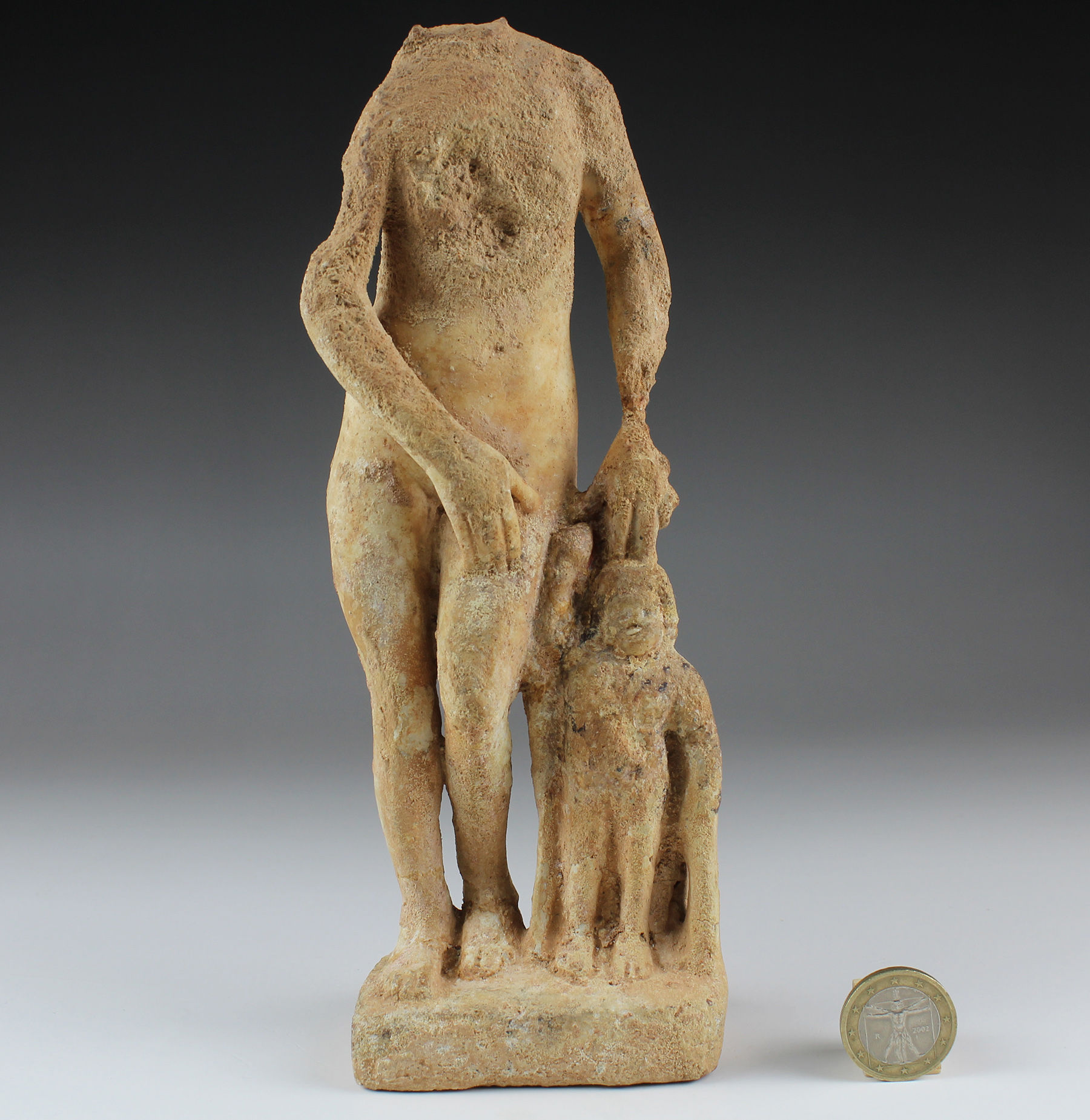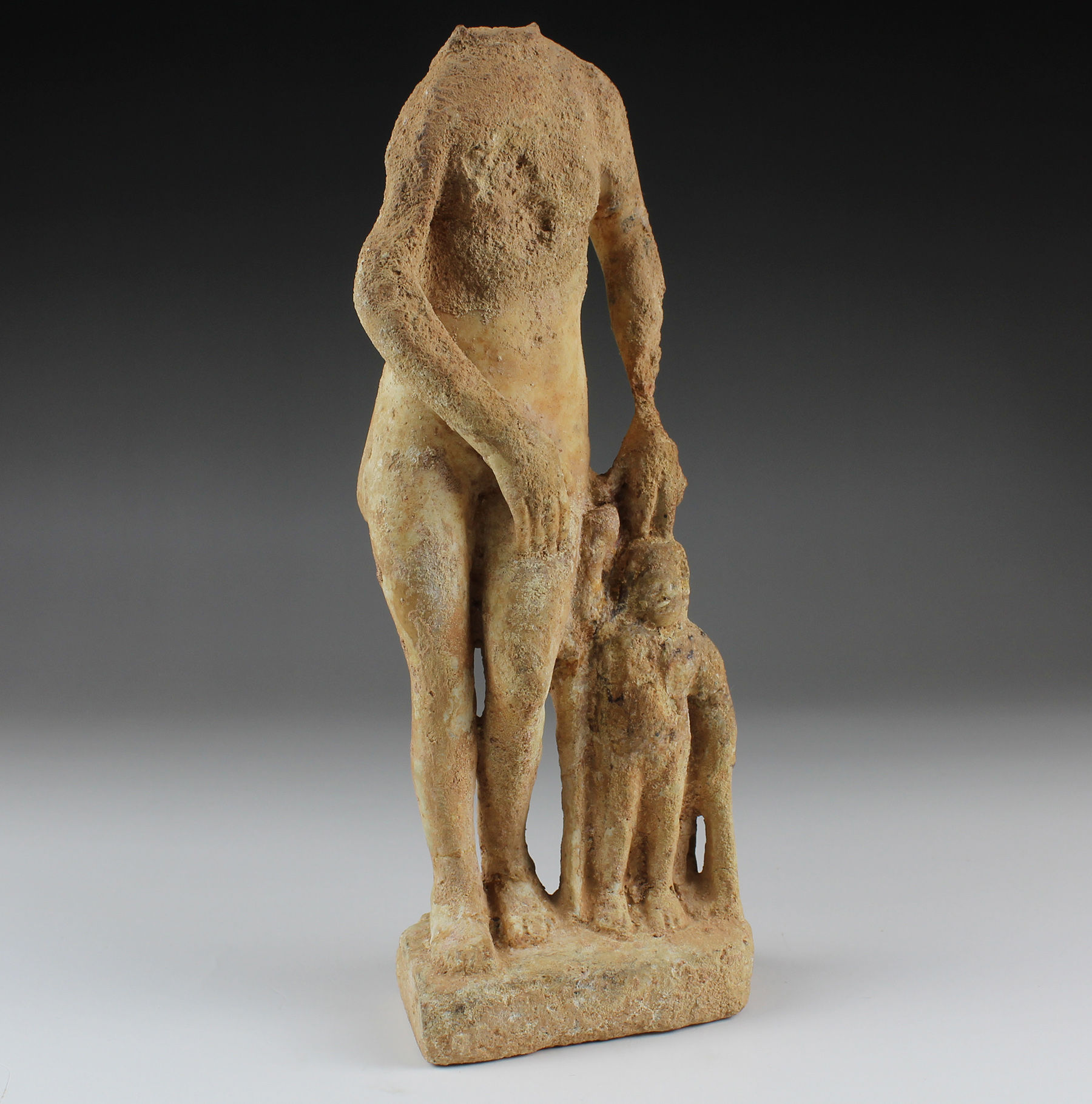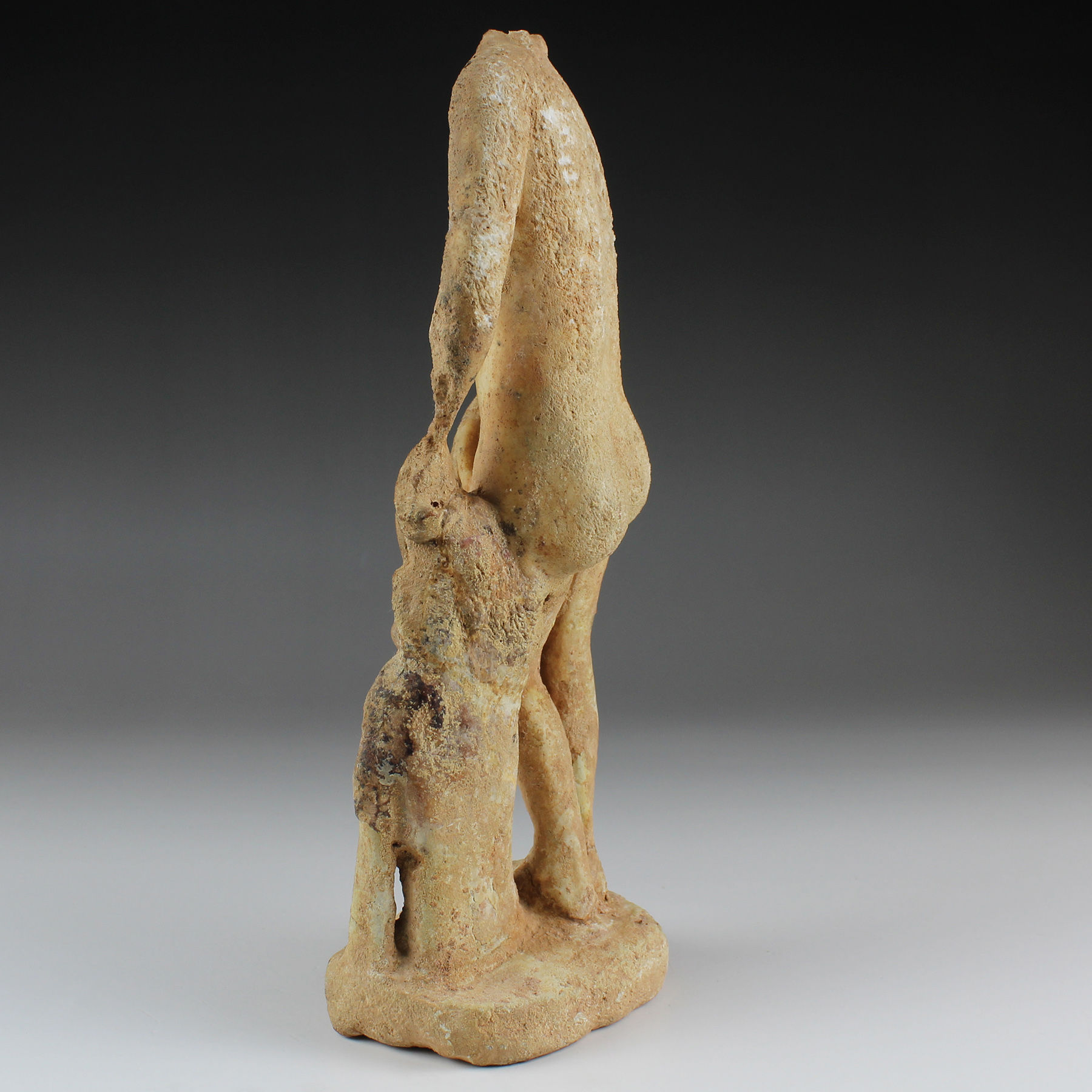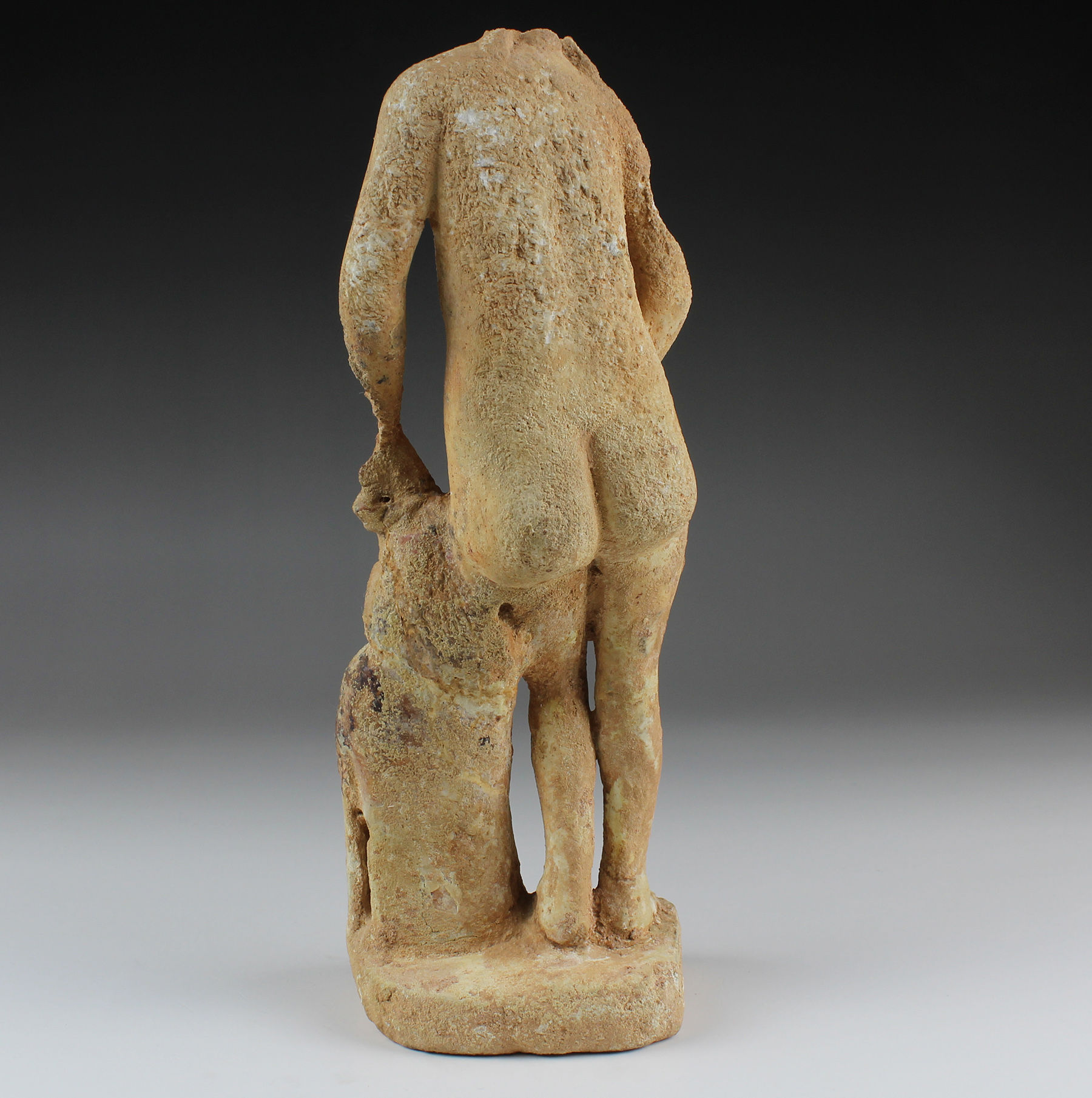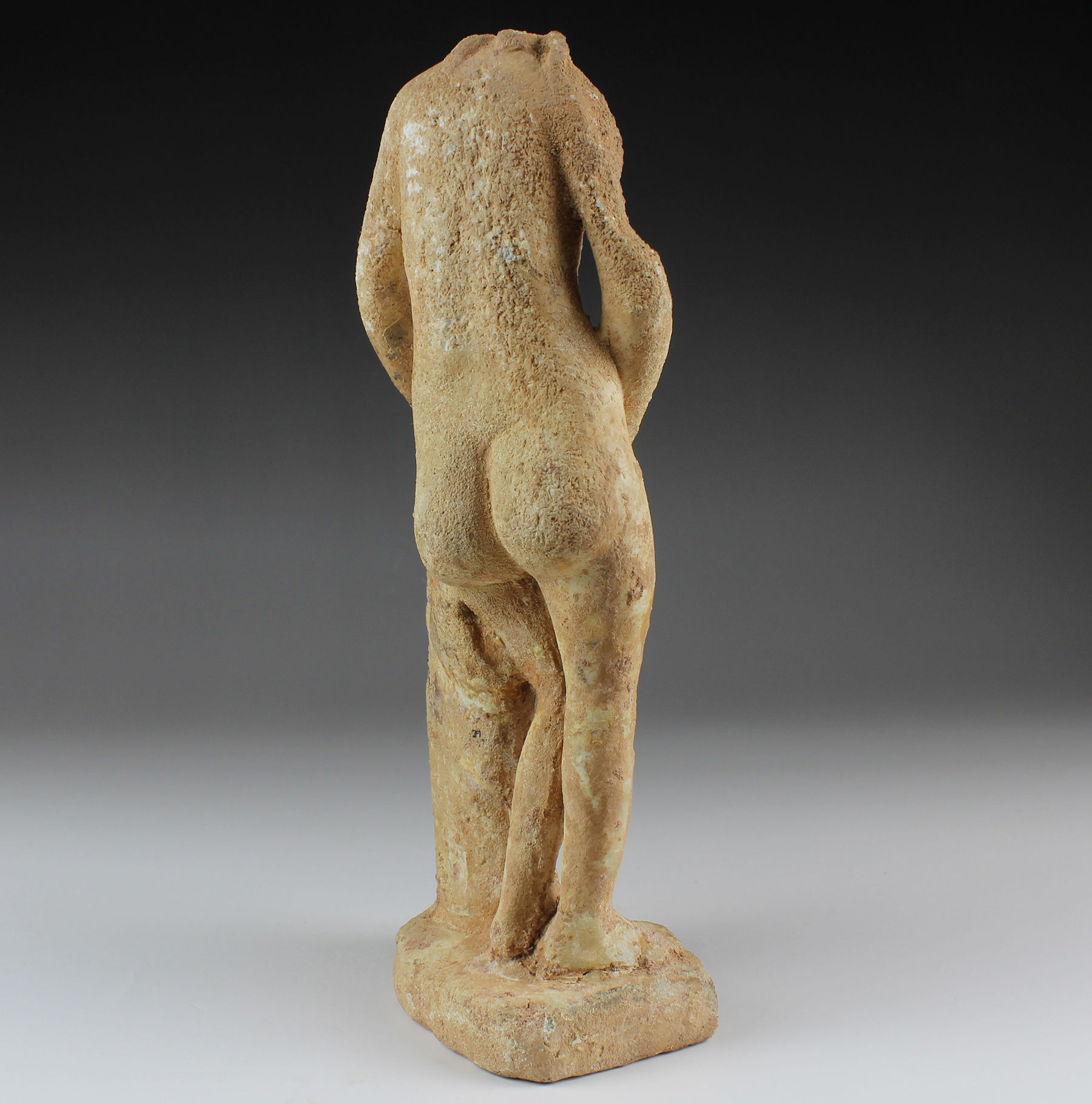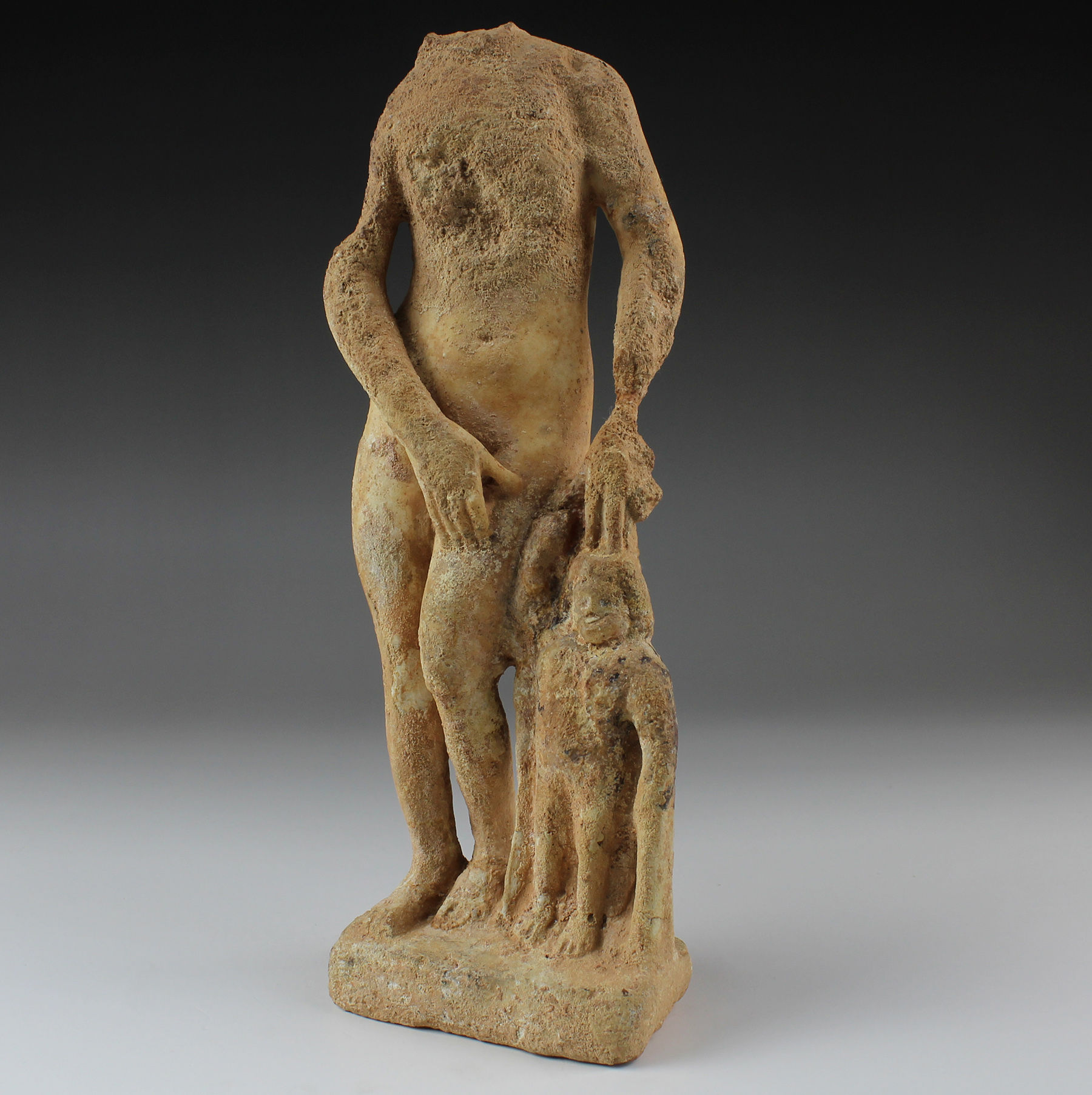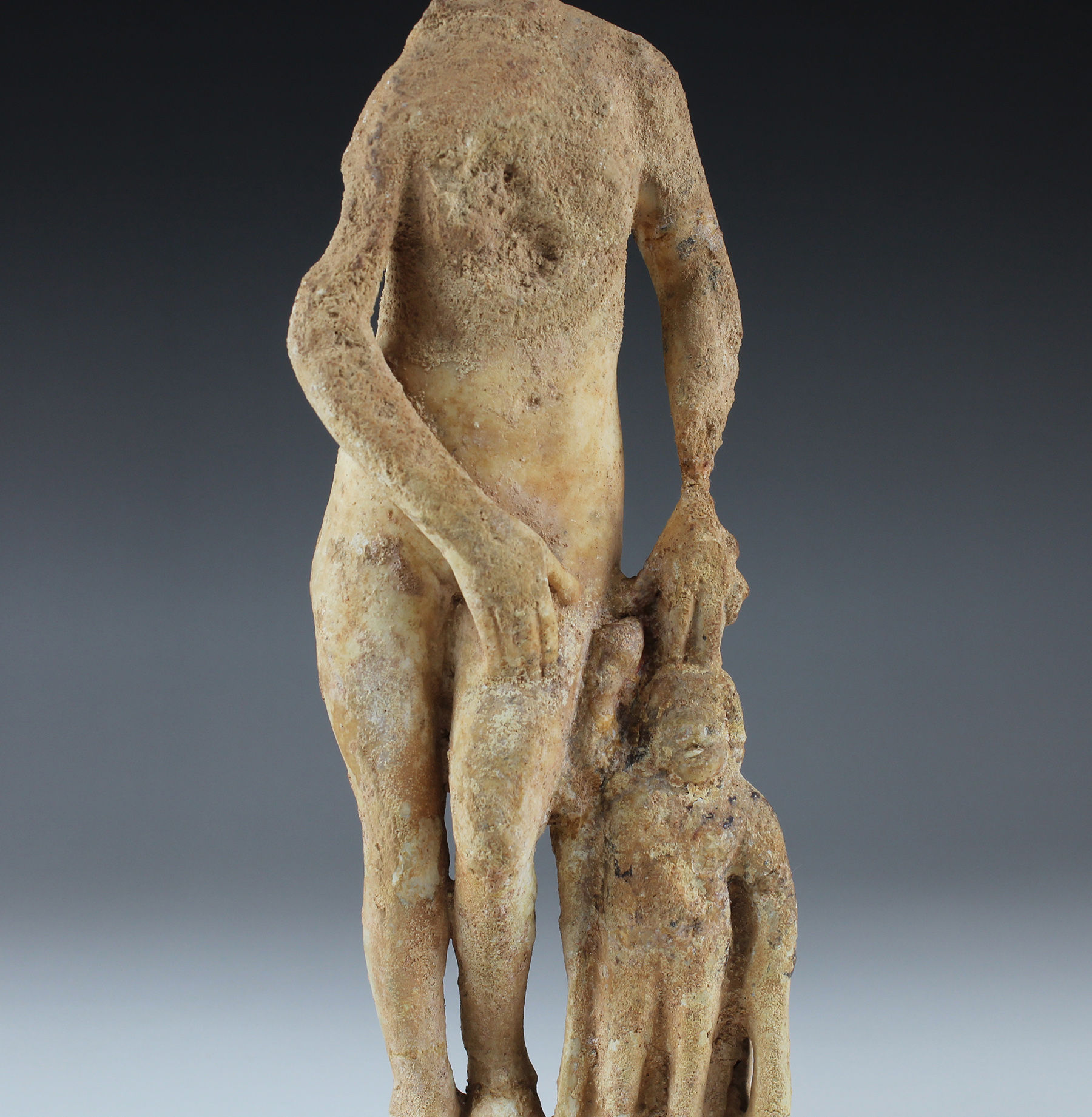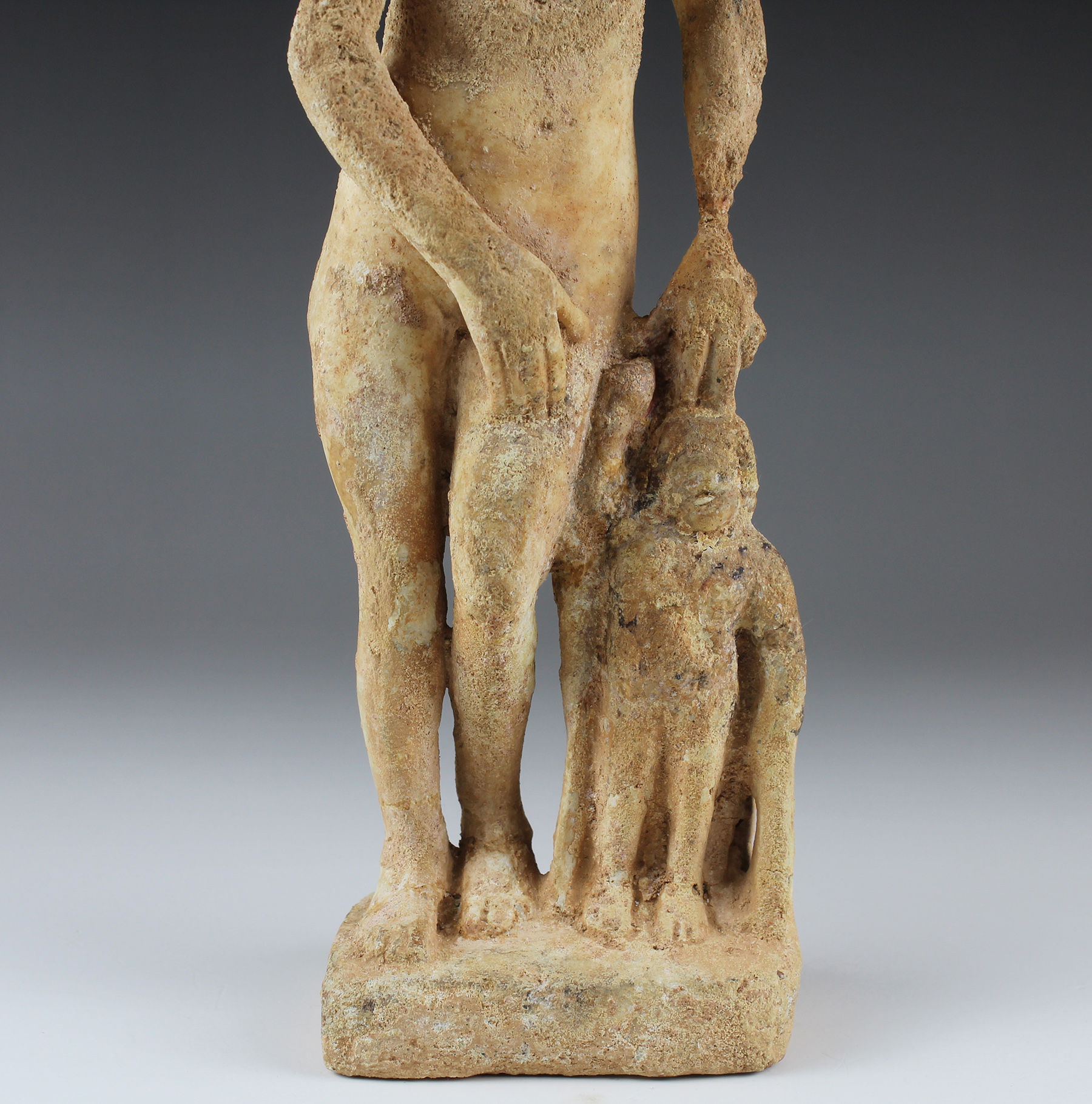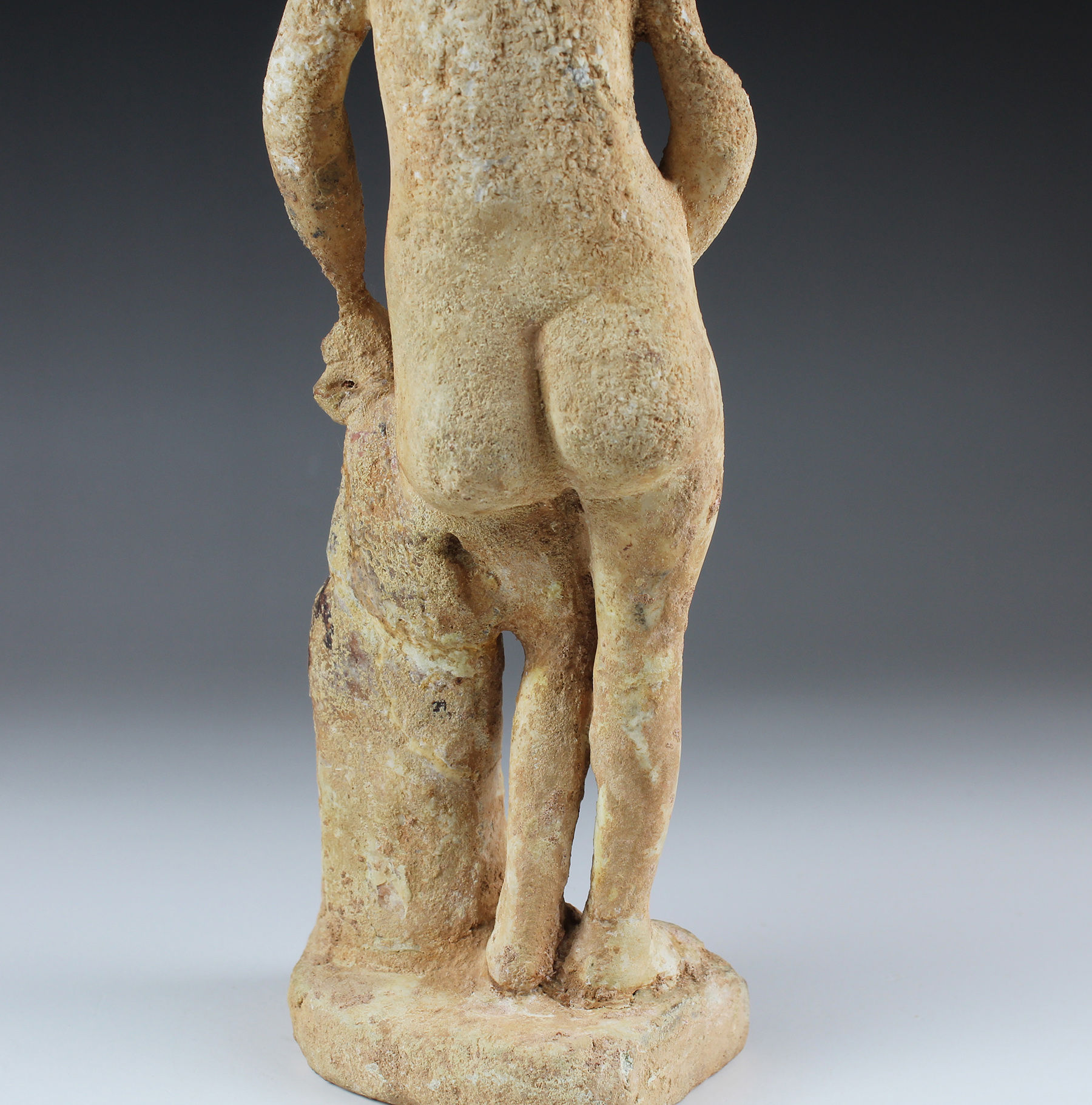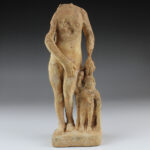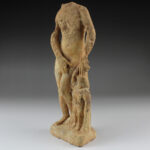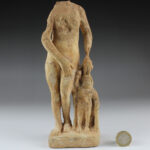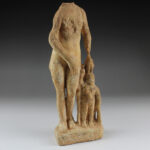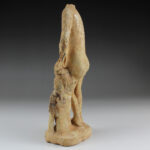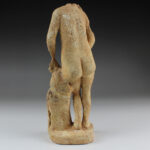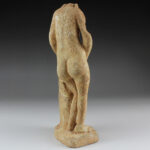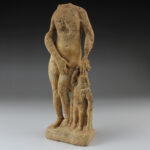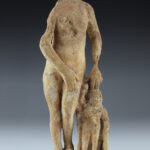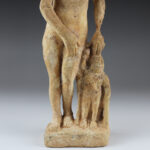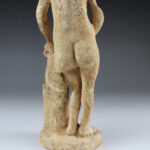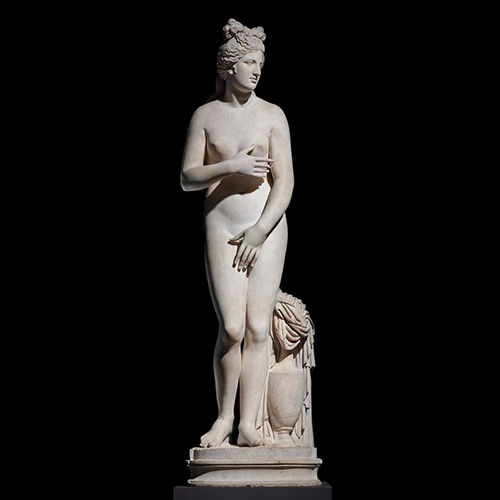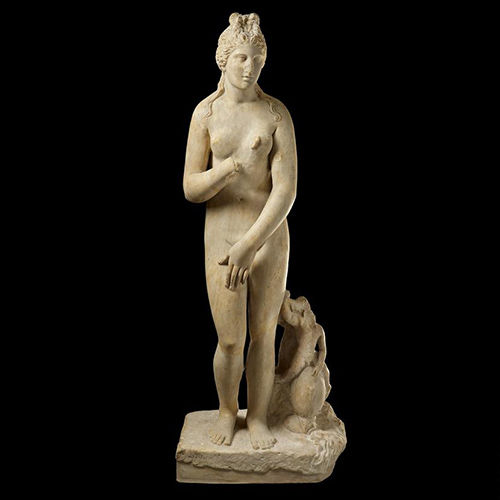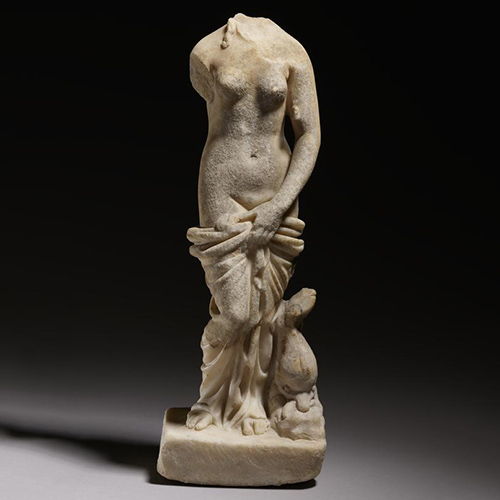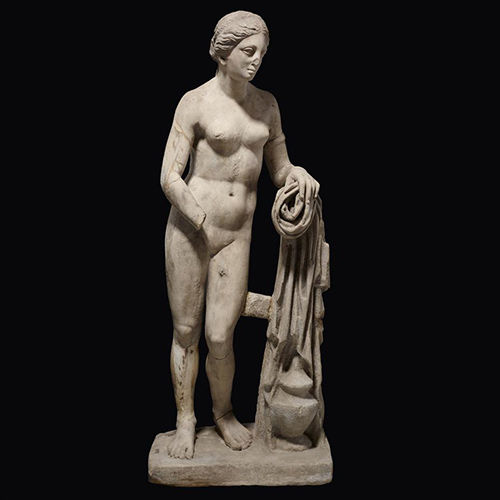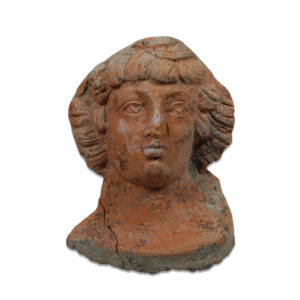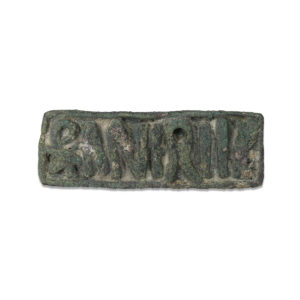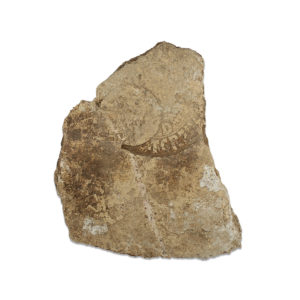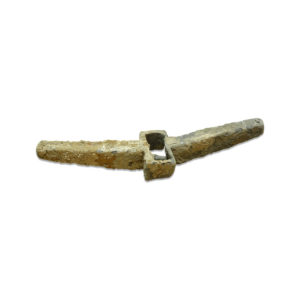Description
| ITEM | Statue of Aphrodite / Venus with Eros |
| MATERIAL | Marble |
| CULTURE | Roman |
| PERIOD | 2nd – 3rd Century A.D |
| DIMENSIONS | 215 mm x 77 mm x 50 mm |
| CONDITION | Good condition, some parts restored by professionals. |
| PROVENANCE | Ex Private collection, acquired in European market prior to 1990’s |
Venus, ancient Italian goddess associated with cultivated fields and gardens and later identified by the Romans with the Greek goddess of love, Aphrodite.
Venus had no worship in Rome in early times, as the scholar Marcus Terentius Varro (116–27 BCE) shows, attesting that he could find no mention of her name in old records. This is corroborated by the absence of any festival for her in the oldest Roman calendar and by her lack of a flamen (special priest). Her cult among the Latins, however, seems to be immemorial, for she had apparently at least two ancient temples, one at Lavinium, the other at Ardea, at which festivals of the Latin cities were held. Hence, it was no long step to bring her to Rome, apparently from Ardea itself. But how she came to be identified with so important a deity as Aphrodite remains a puzzle.
During Hannibal’s invasion of Italy in 204 BC, the Romans followed a Sibylline prophecy that the enemy could be expelled and conquered if the “Idaean Mother” were brought to Rome, together with her sacred symbol, a small stone reputed to have fallen from the heavens. Her identification by the Romans with the goddesses Maia, Ops, Rhea, Tellus, and Ceres contributed to the establishment of her worship on a firm footing. By the end of the Roman Republic it had attained prominence, and under the empire it became one of the most important cults in the Roman world.
That Venus’s identification with Aphrodite took place fairly early is certain. A contributory reason for it is perhaps the date (August 19) of the foundation of one of her Roman temples. August 19 is the Vinalia Rustica, a festival of Jupiter. Hence, he and Venus came to be associated, and this facilitated their equation, as father and daughter, with the Greek deities Zeus and Aphrodite. She was, therefore, also a daughter of Dione, was the wife of Vulcan, and was the mother of Cupid.
The importance of the worship of Venus-Aphrodite was increased by the political ambitions of the gens Iulia, the clan of Julius Caesar and, by adoption, of Augustus. They claimed descent from Iulus, the son of Aeneas; Aeneas was the alleged founder of the temple of Eryx and, in some legends, of the city of Rome also. From the time of Homer onward, he was made the son of Aphrodite, so that his descent gave the Iulii divine origin.


